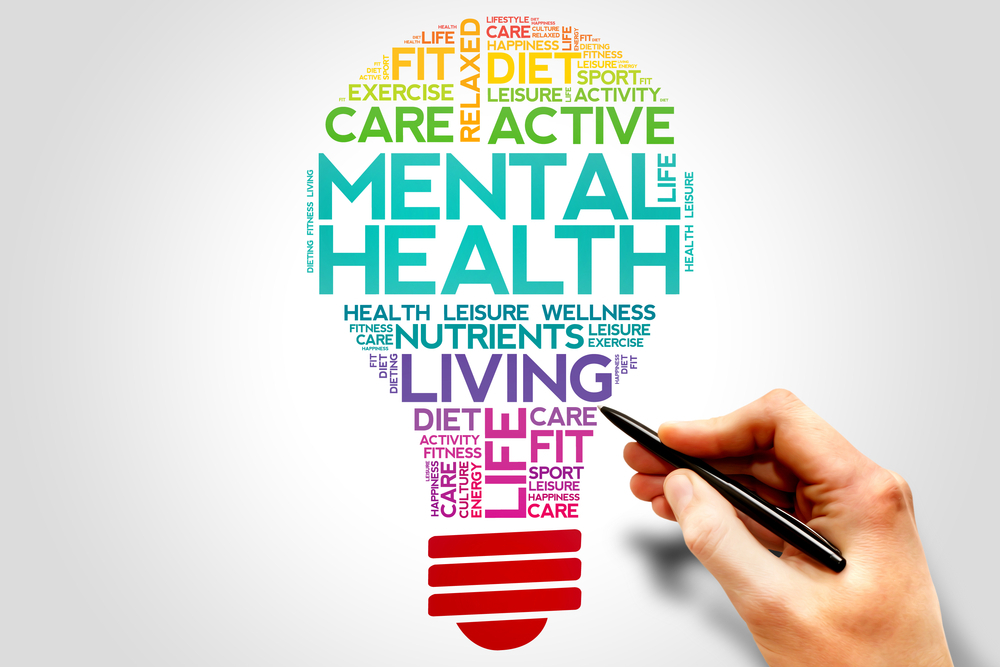The Mental Health Revolution: How Awareness Can Reshape Our World
Recently, we have experienced a pivotal shift in societal values, recognizing mental well-being as fundamental to overall health. Being aware of our mental health spurs policy reform destigmatizes mental illness, and prioritizes emotional support, reshaping our world by fostering resilience, understanding, and inclusivity for holistic health and productivity. This piece aims to explore the transformative impact of increased mental health awareness, including the dismantling of stigma, advancements in treatment, and integration of support systems in workplaces and schools.
Understanding Mental Health
Mental health, an integral part of our overall well-being, encompasses our emotional, psychological, and social welfare. It influences how we think, feel, and act, playing a crucial role in how we handle stress, relate to others, and make choices. Its components include:
- Emotional well-being (our feelings and how we manage emotions)
- Psychological well-being (our thoughts and attitudes)
- Social well-being (how we interact and form relationships with others).
The Difference between Mental Health and Mental Illness
Contrary to common belief, mental health and mental illness are not two sides of the same coin but exist on a spectrum.
Mental illness is a condition that affects one’s thinking, feeling, mood, or behaviour. Some examples are but not limited to depression, anxiety, and bipolar disorder. On the other hand, mental health refers to our emotional, psychological, and social well-being. It affects how we think, feel, handle problems, and make decisions (1).
Good mental health doesn't merely imply the absence of mental illness, such as depression or anxiety. It refers to the presence of positive characteristics, like the ability to manage life's normal stresses, work productively, and contribute to the community. Unfortunately, misunderstandings about mental health are widespread.
A common misconception is that mental health issues are a sign of personal weakness, leading to stigmas that discourage individuals from seeking help. With mental illness, one can't function as a productive member of society. Such stigmas can lead to discrimination and isolation, exacerbating an individual’s difficulties.
Recognizing these misconceptions is vital. It allows us to foster a more informed and supportive community where mental health is openly discussed and treated with the same urgency and empathy as physical health. As awareness grows, we pave the way for a more inclusive society for better mental well-being.
Signs and Symptoms of Mental Health Issues
Recognizing the signs and symptoms of mental health issues is crucial for early intervention and treatment.
Emotional Indicators
- Persistent feelings of anxiety or sadness
- Frequent mood swings
- Feelings of hopelessness—are hallmarks of conditions such as depression and anxiety disorders.
Behavioral Changes

- A person might withdraw from social activities they once enjoyed
- Increased aggression or irritability
- Engage in risky behaviors like substance abuse.
These shifts can indicate stress, trauma, or other underlying mental health problems.
Cognitive Impairments
When someone consistently demonstrates memory problems or difficulty concentrating, it could be a sign of mental health issues. These symptoms can affect performance at work or school and are often associated with various mental health conditions, including depression and anxiety.
Physical Symptoms
Understanding these signs and symptoms is the first step toward seeking help. It's important to note that having one or more symptoms doesn't necessarily mean a person has a mental health disorder, but they should not be ignored. Consulting a healthcare professional can lead to a proper diagnosis and treatment, ultimately contributing to better mental health and an improved quality of life.
Risk Factors and Causes
Mental health is a complex interplay of various factors that intricately affect an individual's well-being (4, 5).
Environmental factors
Environmental factors such as trauma, abuse, and stress are significant. Traumatic experiences can lead to long-lasting psychological effects, like PTSD, which require comprehensive support and treatment. Abuse, whether physical, emotional, or sexual, can impact mental health, often leading to depression and anxiety. Stress, a common aspect of modern life, can exacerbate existing mental health issues or even trigger new ones when they become chronic.
Genetic and Biological Factors
These also play a crucial role. Just as one may inherit physical characteristics, so too can the propensity for certain mental health conditions be passed down. This genetic predisposition, combined with environmental triggers, can increase the likelihood of developing mental health disorders.
Lifestyle Factors

Lifestyle habits can significantly contribute to one's mental health. Poor sleep, often overlooked, is crucial; consistent lack of rest can affect cognitive functions and mood regulation, leading to or intensifying mental health issues. Substance misuse is another lifestyle habit that directly impacts mental health, often serving as a coping mechanism that masks underlying issues. Lack of social support can also be detrimental, as isolation can lead to feelings of loneliness and increase the risk of conditions like depression.
Cultural and Social Factors
Lastly, cultural and societal influences play a critical role. Societal expectations and cultural norms can either support or undermine mental health. The stigma attached to mental health can prevent individuals from seeking help, while supportive community practices can promote mental wellness and encourage seeking treatment.
Understanding these factors is essential for effective mental health strategies. It calls for a holistic approach that includes education, support systems, and policies that address the full spectrum of influences on mental health. By doing so, we can create a more supportive environment that empowers individuals to seek help and fosters a more inclusive society.
Common Mental Health Disorders
Mental health disorders are diverse and impact millions globally, yet they often share a common thread of profound effects on individuals' lives (6).
- Depression and anxiety: These are the most prevalent, characterized by persistent sadness and worry that impair daily functioning.
- Bipolar disorder and schizophrenia: are complex conditions marked by extreme mood swings and altered perceptions or thoughts, respectively. These can disrupt relationships, work, and the ability to handle life’s challenges.
- Eating disorders and substance use: They reflect compulsive behaviors around food and addictive substances, often stemming from deeper psychological issues. They can lead to severe physical health problems and even mortality.
- Post-traumatic stress disorder (PTSD): results from exposure to traumatic events and leads to intense stress responses that interfere with one's sense of safety.
- Obsessive-compulsive disorder (OCD): manifests in repetitive thoughts and behaviors that can become time-consuming and distressing.
Understanding these conditions is crucial as they can affect anyone, regardless of background. Compassion, comprehensive treatment, and support systems are vital for managing these disorders, which is a step toward a more empathetic society.
Seeking Help and Treatment
Seeking professional help is a critical step towards managing mental health conditions. Mental health professionals, including psychiatrists, psychologists, and therapists, offer tailored support. Psychiatrists can prescribe medications, providing biological interventions, while psychologists and therapists typically engage patients in various forms of therapy. Treatments range from cognitive-behavioral therapy, which helps patients reframe negative thinking patterns, to medication for chemical imbalances, and lifestyle changes like improved diet, exercise, and meditation, which can significantly enhance mental health.
Early intervention is paramount. Identifying and addressing mental health issues promptly can prevent the escalation of symptoms and aid in the recovery process. Prevention strategies, such as stress management education and community support programs, play an essential role in mitigating the risk of developing mental health conditions (7). A proactive approach to mental health can lead to better outcomes, emphasizing the importance of awareness and the availability of resources for those in need.
Self-Care and Mental Well-being
Embracing self-care is vital for mental well-being. Integrating regular exercise, a nutritious diet, and engaging hobbies fortifies emotional resilience. Cultivating social connections provides a support network essential for navigating life's challenges. Moreover, mastering stress management and relaxation techniques, like mindfulness and deep breathing, can significantly enhance mental health. Together, these strategies form a comprehensive approach to maintaining a healthy, balanced mind (8).
Breaking the Stigma and Raising Awareness
Breaking the stigma around mental health is crucial. By debunking myths, sharing personal narratives, and enhancing education, we foster open dialogue. Advocacy for policy reform and education in schools and communities dismantles societal barriers, leading to a more informed, empathetic society where mental well-being is openly supported and valued.
Conclusion
In conclusion, the mental health revolution has highlighted the critical role of mental well-being in our lives, prompting significant societal change. It's vital to prioritize mental health, seek support when necessary, and continue the collective effort to destigmatize mental health issues. This movement paves the way for a healthier, more empathetic society where mental care is as treating a physical ailment.
Author: Damilola Elewa
Updated: November, 2023



.jpg)
Comments (0)